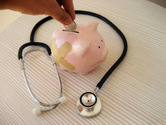 Well, open enrollment is in full swing for healthcare plans starting 2015 - in fact if you’re choosing an individual or family plan off the exchange, you have until December 15th to pick a plan and enroll! So get to it. Even if you are insured through your employer, you are likely being offered new plans to choose from and are bound to the same timeline. Having trouble making heads or tails of the coverage options and what is best for you? Guess what - you’re not alone. The theme of the week in my office has been patients asking me what insurance plan is best, so I’m putting to paper my general recommendations based on healthcare updates in 2015. A Quick Guide to Healthcare Plans in 2015Simply put - what type of insurance plan is best for you depends completely on how you use healthcare. Do you go to the doctor often in addition to your annual exam? Do you have children? A chronic illness? Or do you primarily use complementary and alternative care such as Acupuncture, Chiropractic and Naturopathic care? Here are some simple recommendations for Oregon healthcare plans in 2015: Best Insurance Plan for a Family - low deductible or copay plan ideal Best Insurance Plan for a Healthy Individual - HSA or catastrophic Best Insurance Plan for Complementary and Alternative Medicine(CAM) - included CAM benefits or HSA Best Insurance Plan for Chronic Illness - HSA or low max out of pocket with good pharmacy benefits Stay Tuned for a Step by Step Guide and Glossary of TermsThere was way too much information to put in one blog post, so stay tuned to next week! If the guide above doesn’t give you enough information, next week (still before the deadline!) I’m going to give you a step by step “how to” guide that will walk you through assessing how you use healthcare and how to use that information to figure out what plan is best. AND I’m going to include a glossary of terms if things like “copay” and “coinsurance” and “deductible” make your head spin!
Health insurance is extremely important and extremely confusing, as well as a big investment of your hard earned cash. Spend the time to understand your options, speak to professionals and work with an agent to be sure you make the best choice for your individual healthcare needs! Until next week, good luck! ~Rebecca 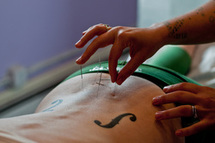 If you’ve ever been in an auto accident or had a major injury or surgery, you know the combination of swelling, inflammation and pain can be both incapacitating and debilitating. One of the hardest things to discern is what you should do when during the inflammatory and healing process. Personally and professionally I can say with confidence that if you don’t know where to start, try Acupuncture. Acupuncture can benefit and support you at EVERY STAGE of the inflammatory process. Before I explain why, I have to debunk inflammation a bit. We think of inflammation as a dirty word, a bad thing that we should combat at all costs because it hinders recovery. In actuality, inflammation is the bodies’ natural response to injury and it is actually a healing mechanism! Acute inflammation is necessary, it is chronic inflammation - when the body can’t seem to turn off the process - where we get into trouble. The good news is that, acute or chronic, Acupuncture can help. As a natural healing method it does not interact negatively with any other therapy you might pursue, such as Physical Therapy or Chiropractic, or even drug therapies such as muscle relaxants and pain medication - the focus of Acupuncture is enhance to and rebalance the body towards achieving a healthy pain free state. The Inflammatory Cycle and Where Acupuncture Fits InThe inflammatory cycle is actually quite interesting, and if you are a fit and active person it is worth acquainting yourself with. If you understand the basics, the timeline especially, I personally believe you are much better able to take care of yourself appropriately which can speed recovery. So, here are the details of the phases of the inflammatory cycle: ACUTE PHASE REPAIR PHASE REMODELING PHASE Acupuncture Reduces Inflammation and Promotes Long Term Healing After InjuryIn short, Acupuncture is a win-win-win when it comes to injury recovery in every phase of the inflammatory process. It can moderate inflammation out the gate, control and reduce inflammation during the slower phases of healing, while simultaneously reducing pain and relaxing muscles. This works synergistically with all other injury and car accident treatments you might pursue. My average moderately-injured auto accident patient comes in once a week for about 12 weeks total and makes a full recovery. A minor fender bender patient can benefit from 2 to 4 treatments through the Repair Phase to ensure that minor aches and pains resolve instead of becoming something major without treatment. My severely-injured auto accident patients often come to see me every other week for a year after an initial series of 8-12 weekly treatments for support throughout the entire remodeling phase and likely have excellent results. The best part about Acupuncture for auto accidents in particular is that its free! Covered 100% by your Personal Injury Protection (PIP) insurance in Oregon. If you’re interested in knowing more about the above or more about how Acupuncture and Chinese Medicine can provide long term relief, please do not hesitate to contact me or book a consult in anytime! Until next time, ~Rebecca Patient Testimonial - "The Best At What She Does!"This past summer I had a car accident, which left me with painful muscle injuries. Rebecca was the most knowledgeable and gentle practitioner, and I very much appreciated her extensive acupuncture and cupping skills. She always does a thorough analysis before each session and I feel extremely confident in her care. I will be returning to her for maintenance treatments in the future" ---B.S. December 2013 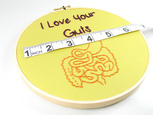 Food allergies and food sensitivities are a central focus of my practice and my life. As someone who is Gluten and Soy intolerant myself I know quite intimately how impactful food allergies can be. For me, I was in constant pain until I finally figured it out Gluten in particular was the main offender, and when I stopped eating gluten it was kind of miraculous. All the cramping, diarrhea, gas and bloating just went away. Not everyone who has food allergies or sensitivities has quite so dramatic an experience after testing themselves (I did a full Elimination Diet which you can read about HERE). Food allergies can cause a range of symptoms, from Irritable Bowel Syndrome (IBS) like I had or inflammatory bowel disease, to mild fatigue, headache, general malaise, even skin rashes and nasal congestion. So when you are trying to sort out a possible allergy or sensitivity, you have to pay attention to all of your symptoms, not just the digestive ones. Allergies, Sensitivities and Tolerance Levels Furthermore, its worthy to note that Allergies vs. Sensitivies are really a matter of degree. Whether you are allergic (meaning it will show up on a blood test) or sensitive (may or may not show up on a blood test) your experience of the symptoms can be just as dramatic and life altering. You also may have a tolerance level for certain allergens and when you tip the scales, you see a reaction but not otherwise. I always explain it like this: When you eat something you are allergic or sensitive to, your immune system responds but if it responds in kind, you experience little to no symptoms. This is your tolerance level. The reaction is happening and your body has it under control. When the body over reacts or under reacts you experience the difference between your allergy tolerance level and the hyper-immune response, or lacking response as the case may, be but usually the immune system is hyper-reactive and this causes your symptoms. 7 Tips for Managing Food Allergies Regardless of allergy vs. sensitivity or how far from tolerance your body and the allergens are taking you, there are many things you can do to manage food allergies. Here are my favorite 7 tips for how to manage food allergies today!
If you’re interested in knowing more about any of these suggestions or more about how Acupuncture and Chinese Medicine can provide long term relief, please do not hesitate to contact me or book a consult in anytime! Until next time, ~Rebecca
Favorite Natural Women's Health Specialist - Rebecca Hurwood, LAc with All Ways Well, LLC Favorite Acupuncture/TCM Practitioner - Rebecca Hurwood, LAc with All Ways Well, LLC  Thank you SO much to everyone who voted, I was really taken aback by winning in two categories! Hoping for more good fortune for all in these last few months of 2014 and into 2015 as well! ~Rebecca #gratitude #humbled #acupuncture 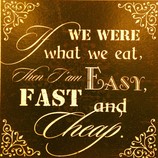 The old addage “you are what you eat” really is true. I don’t know if you recall the big stories that hit in 2007 about mass spectrometer analysis of human hair, but if you do you will recall that if we are what we eat, in the US we would mostly be Corn and Soy. In fact, a 2007 CNN story revealed an average of 69% of our hair in the US is derived from corn! Compare that to an Italian’s hair at the same time - 5% Corn. Granted, in Italy today things are changing as young people shift away from their native Mediterranean diet, but what are we seeing today? More Diabetes, Obesity and Heart Disease - go figure… Corn is not the killer, mind you, and neither is Soy but these mass spectrometer results reveal how insidious fillers are in our food - we give corn and soy to chickens and cows as feed and we use corn as a sweetener in almost every candy and condiment on the US market. Pick up a package of almost anything at your local grocery, read the ingredients and you’ll see - corn, corn syrup, soy - almost always in the first line or first 3 ingredients. Luckily, however, we are awash with choice and if we can adopt the idea that food is medicine and perhaps apply a little of the K.I.S.S. principle (Keep It Simple, Stupid) to the way we eat, a few small shifts can go a long way towards optimizing your health and wellness. 9 Good Eating Habits for Ideal Wellness I personally believe in an 80/20 principle when it comes to eating - if you can do great 80% of the time, you can relax 20% of the time and you’re going to be just fine. Now if you are eating a special diet to cleanse or heal, you must be strict and aim for 100% but hopefully you are eating to heal for a specific reason with a limited time frame and can relax somewhat (food sensitivities excluded) after a 2-4 week period. So, that said, here are 9 general principles that will help you shift your diet to a healthier place:
Simple, Healthy Eating Habits Are the Best Truly, what all the above amounts to is eating simple - its a very Chinese Medicine based principle. Simple, natural foods in reasonable amounts will serve you the best. Make vegetables the base of your diet, and let everything else be an additive. Then, if you are what you eat, you won’t be corn or soy anymore, you’ll be you! A beautiful balanced healthy you. And it WILL show - in my Facial Acupuncture sessions I always include a lot of diet and nutrition counseling as well because truly, how your skin looks is about 85% what you eat, how you live your life, how you hydrate and how your genetics have lined you up. Its about 15% everything on the outside - that is why Facial Acupuncture treats the whole body, not just the face. Some more food for thought! If you’re looking for more resources about food and diet, check out these books - they are some of my favorites that I always keep on my shelf and home and recommend to others. Until next time, ~Rebecca
healthy eating habits, healthy fasting, healthy eating tips
|
AuthorsRebecca M H Kitzerow is a Licensed Acupuncturist practicing in La Center, Washington. With over a decade of experience she has won 10 Nattie consumer choice awards from Natural Awakenings Magazine since 2014. Archives
July 2024
Categories
All
|
Photos from Hey Paul Studios, BeGreen_Studio, Pawel Pacholec, 1950sUnlimited, toulupaliaqaz, Joelk75, OnTask, Robert Gourley, cnu_sports, Mitya Ku, wuestenigel (CC BY 2.0), FootMassagez, 401(K) 2013, Mariana Heinz, @EdwardTerry, fishhawk, liverpoolhls, torbakhopper, Boemski, dolomitibl, Driscolltheque, Dave n Laura, Vaping360, MVWorks, Life Mental Health, MVWorks, mikefats, Scot Nelson, jfl1066, wZa HK, ruurmo, Guadalupe Cervilla, Army Medicine, GViciano, torbakhopper, adrigu, Saulo Cruz, Ben Cumming, marniejoyce, kcxd, JasonCorey, kanenas.net, Live to Create Photography, gm.esthermax, Unique Hotels Group, Zenspa1, mysiana, Tobias Lindman, Leader Nancy Pelosi, Kristoffer Trolle, swanksalot, Bill Selak, Parker Knight, stimpsonjake, Gedankensprudler, SuperFantastic, tonynetone, marniejoyce, JeepersMedia, Illusive Photography, 'Ajnagraphy', Iban Torras, scotted400, gtall1, dvanzuijlekom, BPPrice, Skley, torbakhopper, Renato Ganoza, anka.albrecht, QUOI Media, Public Domain Photos, Instant Vantage, Victor Tongdee, Free Grunge Textures - www.freestock.ca, sportEX journals, Nadja Tatar, angela n., marniejoyce, MVWorks, Karolina Kabat, Thomas Fisher Rare Book Library, UofT, ginnerobot, tracilawson, haven't the slightest, My Photo Journeys, Pierre Willemin, Florena_Presse, SuperFantastic, colindunn, zzkt, TraumaAndDissociation, ER24 EMS (Pty) Ltd., shixart1985 (CC BY 2.0), marniejoyce, Tomás Fano, freestock.ca ♡ dare to share beauty, Archives New Zealand, Jaykhuang, airdrie.m, Go-tea 郭天, OnTask, wuestenigel, focusonmore.com, Disney | ABC Television Group, Andrew Gustar, Didriks, ConstructionDealMkting, charlywkarl, barnimages.com, Lel4nd, runwaypilates, michaelstephanfotografie, McLevn, TraumaAndDissociation, eLife - the journal, Lars Plougmann, wuestenigel, shixart1985, boviate, davis.steve32, kevin dooley, @the.photoguy (insta), frederic.gombert, Feathering the Nest, Victor Tondee, shixart1985, wuestenigel, Joe K Gage, kennethkonica
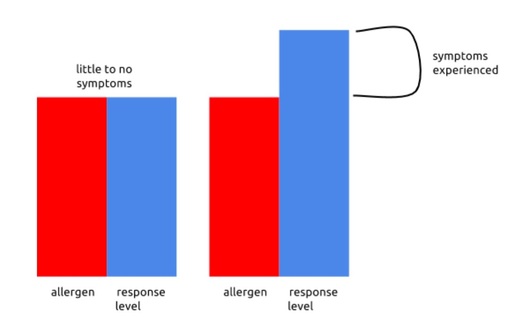
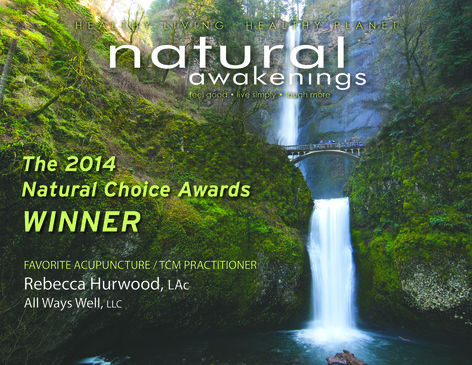
 RSS Feed
RSS Feed
